Ekklesia Issue 28 – 3/2025
This issue to Ekklesía reports on the ecumenical conference
Called to Hope – Key players of Dialogue
which was held in the Mariapolis Center in Castel Gandolfo from the 26 to 29 March 2025.
Participants came from 20 different churches and 40 different countries.
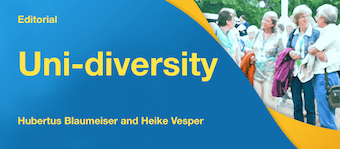
Editorial
The experience of “uni-diversity” reveals how unity can emerge through difference. This reflection explores how dialogue, shared faith and openness to the other can become a living sign of communion for our time.
by Hubertus Blaumeiser and Heike Vesper
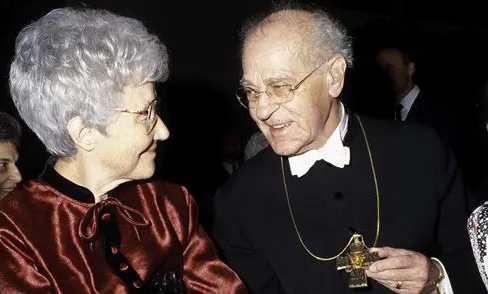
Beyond the trauma of division
In her reflection at an ecumenical gathering in Augsburg, Chiara Lubich invites Christians to move beyond the wounds of division toward a renewed unity rooted in love.
by Chiara Lubich
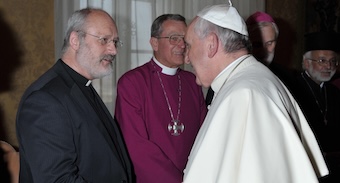
The world needs ecumenism
Callan Slipper, with his experience in the ecumenical field, invites readers to rediscover unity as the heart of the Gospel and a vital path toward healing, reconciliation and renewed hope for humanity.
by Callan Slipper
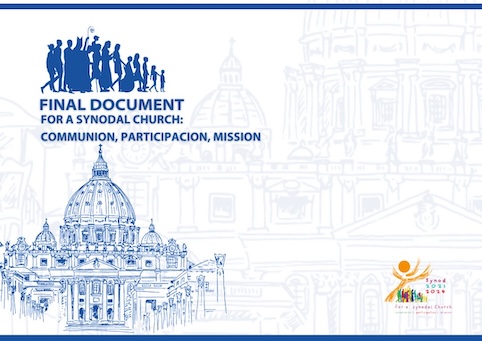
Walking Together!
Drawing on the Final Document, this reflection explores how synodality, dialogue and shared discernment open new paths toward Christian unity, inviting all the faithful to walk together in communion, mission and hope.
by Mervat Kelli
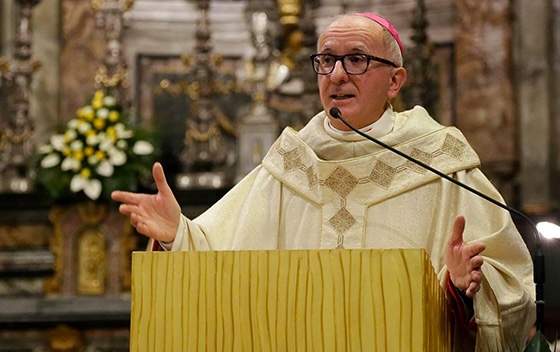
Ecumenical and interfaith dialogue in Italy
Bishop Derio Olivero explores how ecumenical and interreligious dialogue can become a vital force for social cohesion. From shared responsibility in public life to new forms of collaboration, he presents dialogue as a path toward a more just, peaceful and humane society.
by Mgr. Derio Olivero
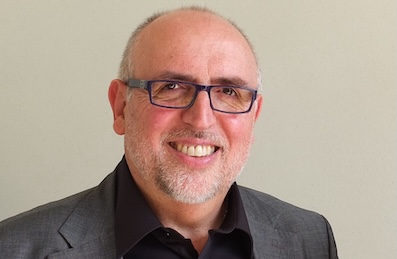
The urgency of unity
A reflection on the urgency of Christian unity today, calling for a move from strategic union to lived unity and for Christianity to be embraced as a transformative way of being in Christ.
by Jesús Morán
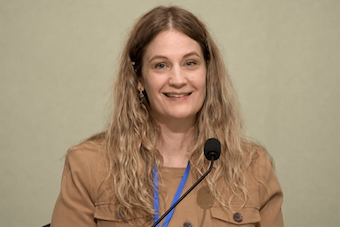
Grassroot ecumenism in the USA
Karen Petersen Finch draws on a lived ecumenical experience in Clarkston, Washington, to explore how lay Christians from different traditions engaged in deep theological dialogue.
by Karen Petersen Finch
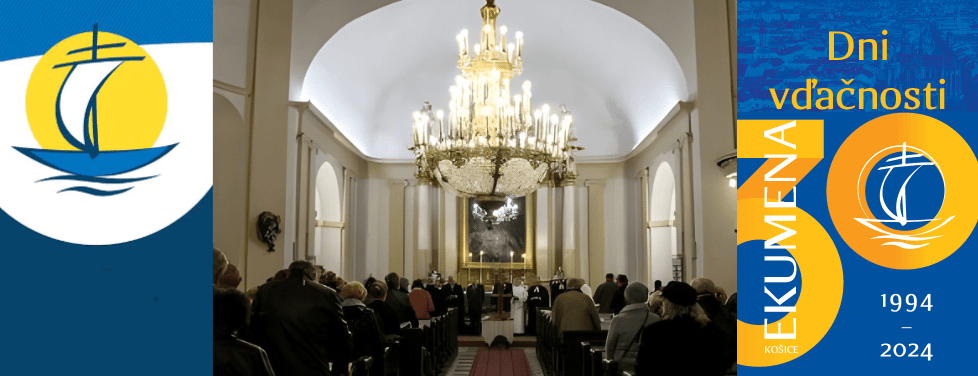
30 years of communion among Churches in Košice – Slovakia
by Anton Konečný
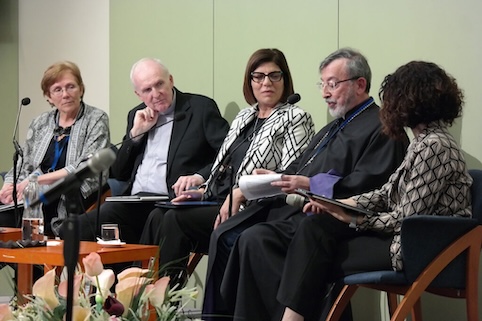
Unity is not so far away
Drawing on the Final Document, this reflection explores how synodality, dialogue and shared discernment open new paths toward Christian unity, inviting all the faithful to walk together in communion, mission and hope.
by Mervat Kelli and Hubertus Blaumeiser
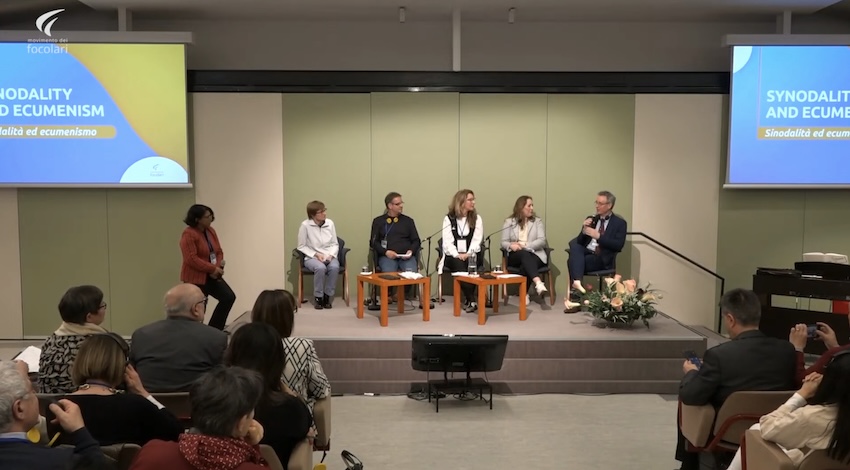
Seeds of hope in the Balkans
In a region marked by cultural and religious diversity, Serbia offers a living example of dialogue and coexistence. Through shared initiatives among Christians, Muslims and civic institutions, seeds of peace are being sown. This reflection explores how grassroots encounters are fostering mutual understanding, reconciliation and a culture of encounter in the Balkans.
by Vida Rus
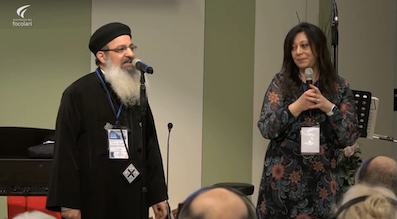
Bridges between denominational families
Through dialogue, prayer and shared witness, the Coptic Orthodox Church has become a key protagonist in building bridges among Christian traditions.
by Mervat Kelli
Pathways to
communion
and dialogue

Ekklesía is a print and digital initiative available in various languages. It conveys and promotes the complementarity of the Church’s charismatic and ministerial dimensions in the light of the teachings of the Second Vatican Ecumenical Council.
Guided by the principle of universal brotherhood, readers are invited to journey and work together along paths of communion and dialogue. In this way, Ekklesía hopes to contribute to building a synodal reality in which all members of God’s people are valued in the common search for new ways to proclaim the Gospel of Jesus to men and women of our time.
Ekklesía’s articles focus on Church and societal renewal; relationships among different Churches and religions; encounters between diverse peoples and cultures; and dialogue with persons of differing convictions or of no particular religious belief.
Each quarterly issue focuses on a particular and relevant theme.
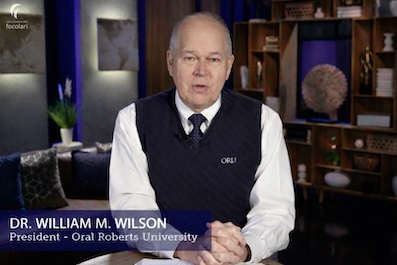
Relationship Mission Spirituality
Dr. William Willson of the Pentecostal World Fellowship reflects on Christian unity as relationship, mission and spirituality communion, inviting believers to live the Gospel together for the transformation of the world.
by Dr William Wilson
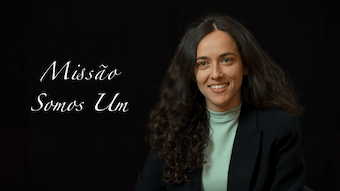
Somos Um Mission in Brazil
A powerful personal testimony from Brazil, where suffering, faith and reconciliation converge. Through the experience of the Somos Um Mission, Mayara Pazeto reflects on how personal wounds, ecclesial divisions and the search for unity become paths of hope, healing and renewed communion among Christians.
by Mayara Pazeto
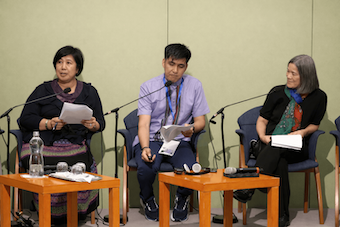
The Rizal Movement – Prayer and Dialogue in the Philippines
The Rizal Movement in the Philippines shows how dialogue, lived daily and rooted in faith, can transform divisions into communion and build bridges of hope among diverse Christian churches.
by Isagani Casambros, Len Leyva and Gay Maddela

Jesus Celebration 2033
An ecumenical journey toward the Jubilee of the Resurrection in 2033, bringing Churches together around a shared witness of faith, unity and hope. The Jesus Celebration 2033 initiative invites Christians worldwide to rediscover the power of the Resurrection through dialogue, prayer and common mission.
by Martin Hoegger
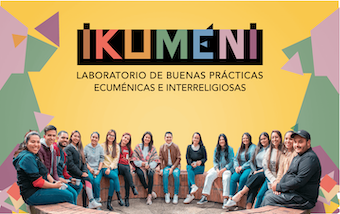
Project Ikuméni and ecumenism in Latin America
A vibrant testimony from young Christian leaders in Latin America, this article explores the Ikuméni project—an ecumenical initiative fostering unity, dialogue, and shared mission among young people from different Churches.
by Eddy Juárez and Laura Camila Jiménez
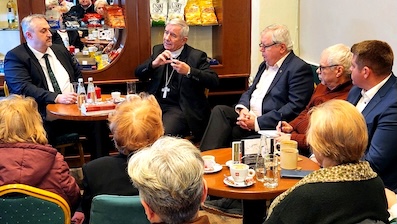
Listening and fraternity in the diocese
Bishop József-Csaba Pál reflects on the synodal journey of the Church, sharing how listening, fraternity, and spiritual discernment are transforming diocesan life through communion and ecumenical openness as paths toward a more missionary and relational Church.
by Bishop József-Csaba Pál
Videos
RELEASE DATE
First published in December 2018, Ekklesía reflects the merger of two former publications, “Charisms in Unity” (1990) and “Gen’s” magazine of ecclesial life (1971).
READERSHIP
People working in all types of pastoral ministry; members of religious congregations and ecclesial communities; persons involved in parish and diocesan activities; leaders and members of movements or associations; those serving on the peripheries or in dialogue initiatives; anyone interested in the journey of the Church in today’s multi-religious, multicultural society.
EDITORIAL BOARD
Hubertus Blaumeiser (editor), Carlos García Andrade, Renzo Beghini, Patrizia Bertoncello, Enrique Cambón, Maria do Sameiro Freitas, Oreste Paliotti.
Secretary: Michele Gatta.
ENGLISH LANGUAGE VERSION
Editors: Susan Kopp and Vincent Lockhart
www.ekklesiaonline.org
Contact: admin@ekklesiaonline.org